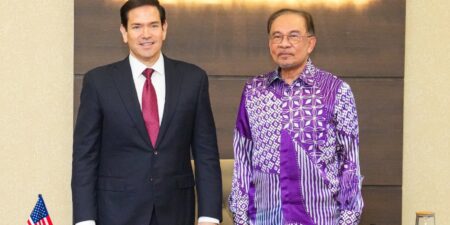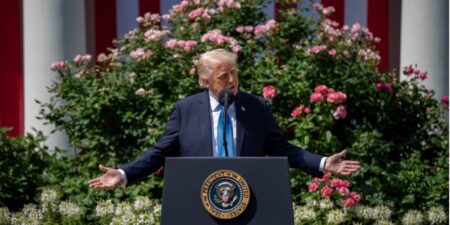BGA Senior Adviser Dr. Thitinan Pongsudhirak wrote an update to clients on Thailand’s political and economic outlook in 2025.
Thailand’s political environment over the past year has been marked by machinations to keep the biggest election winner Move Forward Party from power and to ensure that the runner-up Pheu Thai Party leads a coalition government the old guard can put up with. These maneuvers after the May 2023 poll, initiated by pro-establishment saboteurs and overseen by the Constitutional Court, initially forced Move Forward into the opposition and ultimately dissolved the party. At the same time, Thaksin Shinawatra was brought back from exile in August 2023 for a perfunctory jail sentence, and Srettha Thavisin was installed as prime minister.
By August this year, Srettha was unceremoniously removed by the Constitutional Court on ostensible ethical grounds, paving the way for Paetongtarn Shinawatra to become Thailand’s youngest prime minister and the second woman to hold the position after her exiled aunt, Yingluck Shinawatra. Yingluck’s tenure in 2011-14 was upended by a military coup, similar to Thaksin’s earlier fate in 2006. With Thaksin back in the political fray and Yingluck looking for a way home, Paetongtarn’s premiership marks the Shinawatras’ full-fledged return to Thai politics. As this powerful and resilient clan extends and consolidates control within the party, the coalition government and broader Thai politics, political stability and policy performance can be expected up to a point in 2025.
The measured political stability in the coming year derives from a bargain between royalist-conservative forces behind the scenes and the Shinawatras. As long as Pheu Thai keeps People’s Party — the successor to Move Forward and known as “Prachachon” Party in Thai — tamed in opposition without posing a threat to the military and monarchy, Thaksin through Paetongtarn can hold the reins of coalition government. Tellingly, the Constitutional Court on November 22 dismissed a petition against Thaksin for violating Article 49 of the charter and trying to undermine the democratic system with the king as head of state by exerting undue influence over Pheu Thai. Within days, the Election Commission threw out several dozen fraud charges against Thaksin and Pheu Thai. Both the family and the party appear to be in the clear in the near term.
For additional insurance, Thailand’s powers that be have also deployed Bhumjaithai Party, a pro-military and pro-monarchy junior coalition partner, to do their bidding by gaming the Senate election process in its favor last June. Bhumjaithai can now count on two-thirds of the Senate as allies to supervise the process of appointments to key monitoring and oversight agencies, such as the Election Commission and the Constitutional Court. Another measure is to put a stranglehold on charter change by making the referendum processes cumbersome and restricted to the status quo.
The upshot is that the Pheu Thai-led coalition government will leave the interests of the military and monarchy intact and buoyant while trying to regain electoral ground with policy performance. Notwithstanding the dismissed charges of his role and influence over Pheu Thai, Thaksin has been giving campaign speeches in recent local elections and appearing more in direct charge of the party he founded 26 years ago. The division of labor between him and his youngest daughter can be likened to the relationship between chairman and CEO, mind and body, backdrop and foreground and strategy and tactics. It is more fused than when Yingluck was prime minister with Thaksin in exile. This time, he is home, and his daughter is prime minister.
For 2025, Pheu Thai is poised to roll out the rest of its THB 10,000 ($300) digital handout scheme to 50 million low-income earners after delivering to 14.5 million of them last September. Despite criticism, the handouts and economic policies such as a THB 400 ($12) minimum wage will be prioritized for implementation, ahead of the nationwide provincial administrative organization election scheduled for February 2025. Tourism and foreign direct investment in key sectors, such as automotive, cloud services and data centers, are on the cards, with the recent establishment of the national boards on electric vehicles and semiconductors chaired by Paetongtarn herself. Bilateral free trade agreements, particularly with the European Union, will be accelerated to build on momentum generated by the Thailand-European Free Trade Association deal this year.
Joint exploration of oil and gas in the overlapping claims area will be a major focus for Thailand’s energy security despite controversy and opposition from anti-Thaksin columns. Growth for 2024 is projected at 2.7 percent, with 2.9 percent for 2025. However, there is upside potential. Pheu Thai is desperate to rev up growth engines to contain public debt of 66 percent and household debt of 91 percent, as measured in GDP terms, ahead of the next poll in 2027. Thaksin has even touted a key barrier of 5 percent growth to regain competitiveness and placate popular demands and hardships.
Digitalization, workforce development, sustainability and “Thailand soft power” promotion remain the key narratives for private sector partnership and collaboration with the government. The digital regulatory regime is expected to be tightened in line with the government’s urgent priority to tackle cybersecurity and online scam threats. The draft Platform Economy Act and cybersecurity and cloud services regulations are in the pipeline and scheduled to make headway in the first half of 2025. Nonetheless, regulators will keep on the lookout for artificial intelligence and over-the-top regulations as they opt to wait and see their potential impact on markets. The government is also highlighting supporting policies and initiatives to advance Thailand as a regional hub in targeted industries, including as a financial hub focused on initiatives such as virtual banks, payment, fintech, digital assets and stablecoins.
Saboteur groups who want to upend the Paetongtarn government will likely make steady noise, similar to the streets protests in the past that ousted Thaksin and Yingluck. However, with the establishment-backed realignment between Thaksin and his old enemies against People’s Party, which appears satisfied to bide its time and prove its worth as an effective and technocratic parliamentary opposition, the agreement among the players that call the shots in Thai politics will likely last through 2025 and plausibly all the way to the next election, barring unforeseen and earth-shaking circumstances.
We will continue to keep you updated on developments in Thailand as they occur. If you have comments or questions, please contact BGA Senior Adviser Thitinan Pongsudhirak at thitinan@bowergroupasia.com and BGA Thailand Managing Director Teresa “Art” Siripant at tsiripant@bowergroupasia.com.
Best regards,
BGA Thailand Team

Senior Advisor
Thitinan is a renowned scholar, journalist and expert in international relations and domestic politics across Asia. He has spent more than three decades analyzing and advising on Thailand and the region’s political economy, geopolitics and policy. He helps BGA and clients understand in-depth the global, regional and domestic issues that affect business. Thitinan is a professor of international relations and international political economy at Bangkok-based Chulalongkorn University’s Faculty of Political Science and a senior fellow at its Institute of Security and International Studies. He has lectured widely at local and international universities, military colleges and international organizations on political and ...
Read More


























